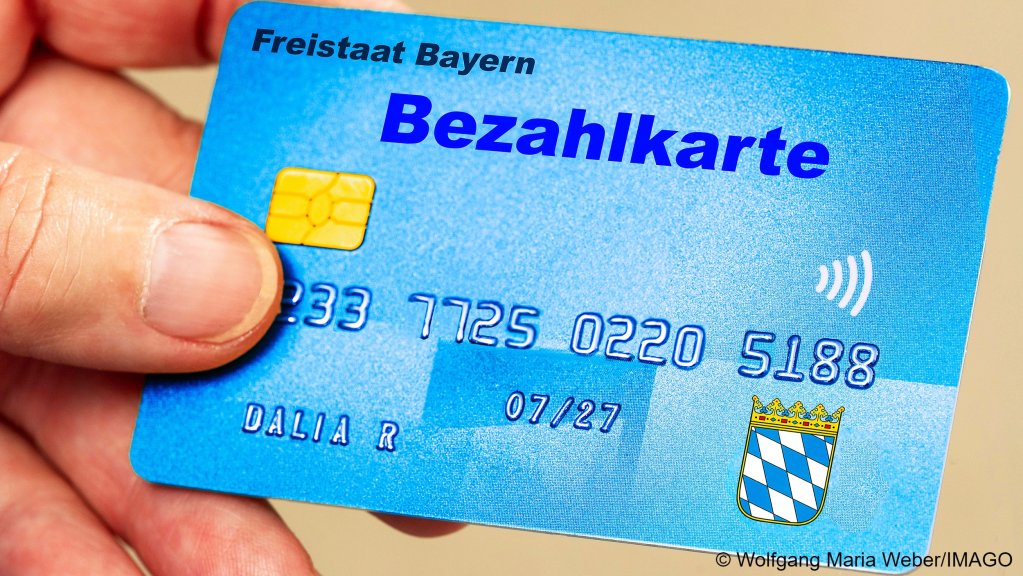Asylum seekers receive benefits either in kind or in cash. In Germany these rates are adjusted every year -- in 2025, they will be reduced.
Asylum seekers in Germany will receive reduced welfare benefits next year, with monthly rates set to drop by 13 to 19 euros depending on age, living situation, and family status.
The Federal Ministry of Social Affairs published these new rates on Tuesday, as reported by the German paper Handelsblatt.
Under the updated Asylum Seekers Benefits Act, single individuals not living in shared housing will now receive 441 euros per month, down from the previous 460 euros. Couples in shared housing or collective accommodations will see their monthly payments fall from 413 to 397 euros, while rates for children, young people, and unmarried adults under 25 living with their parents will also decrease.
Although welfare benefits were significantly increased last year, the adjustments for 2024 align with the annual recalculations based on price and wage changes. Unlike social assistance and the citizen’s allowance, which remain stable under separate protections and cannot be reduced, reductions are allowed under the Asylum Seekers Benefits Act.
Read AlsoGermany: Welfare benefits for asylum seekers to be reduced in 2025

Payment card
In recent months, Germany has been introducing new policies to manage asylum numbers, including a debit card system that has replaced most cash benefits, restricting usage to local purchases without cash withdrawals or transfers.
Additionally, some municipalities are considering mandatory community service for asylum seekers without work permits. This would involve up to four hours of daily service in exchange for a small stipend, with deductions from benefits for non-compliance.
These measures are widely supported, reflecting increasing public skepticism about immigration as resources are stretched, particularly for housing and childcare. Recent gains by right-wing parties in state and EU elections have also intensified the focus on migration issues.
Despite Germany's ongoing skills shortage, the government has notably shifted its rhetoric on migration. Chancellor Olaf Scholz has indicated support for increasing deportations, while the Interior Ministry is considering processing asylum applications outside the EU.
Read AlsoGermany takes steps to attract skilled Indian workers
Germany gets tough on asylum seekers
Last month the German government announced that in addition to welfare cuts, it is accelerating EU asylum reforms. These will increase border controls and fast-track processes for asylum seekers from safe countries, allowing for quicker returns. Although the EU mandates these reforms by 2026, Germany aims for earlier implementation. The reforms include a "solidarity mechanism" to distribute asylum seekers across EU nations, easing pressure on countries like Germany.
In addition, the German parliament has approved parts of a new security package aimed at enhancing national security. The package includes stricter asylum and migration rules, such as using biometric data to verify asylum applicants’ identities and halting welfare payments for asylum seekers deemed the responsibility of another EU country under the Dublin regulation.
The package also includes provisions to prevent terrorism financing and stricter rules for those granted asylum who return to their home countries. However, exemptions apply for Ukrainian nationals, who retain specific protections. While the first part of the package passed both houses, a second draft addressing terrorism was blocked in the Bundesrat by leaders of the center-right CDU/CSU alliance, who argue it doesn’t go far enough.
Read AlsoGermany: State leaders want to further tighten migration and border controls
With dpa
